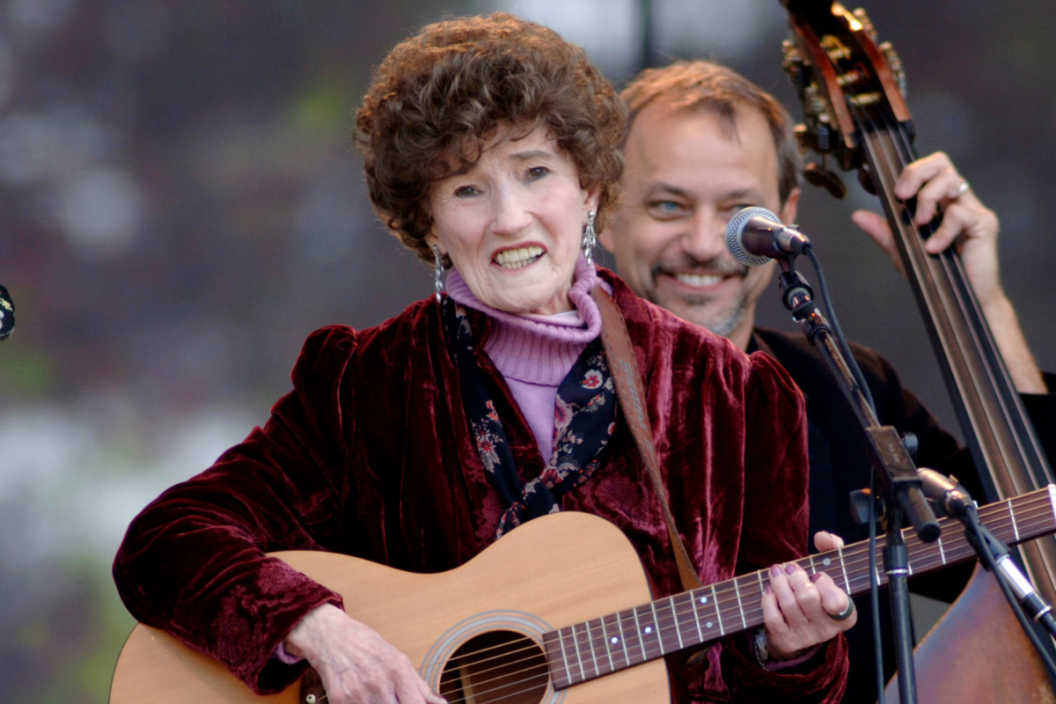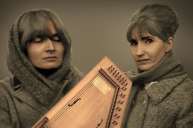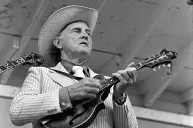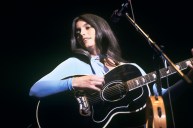A pioneer for women in bluegrass who was outspoken about everything from the love for her native West Virginia to her support for coal miners, women's rights and more, Hazel Dickens has and continues to inspire artists in bluegrass and old-time music to this day, more than a decade past her death from complications of pneumonia in 2011.
Videos by Wide Open Country
Born atop a mountain in the heart of coal country—Mercer County, West Virginia—on June 1, 1935, Dickens grew up in a blue collar, working class home that depended on the coal industry for survival. The eighth of eleven children, Dickens saw firsthand her family's struggles to get by as her father H.N. worked as a truck driver, Primitive Baptist preacher, and part-time musician to make ends meet.
It was through her father's work as a part time musician that Dickens would eventually meet Mike Seeger, who previously had recorded H.N. for Smithsonian Folkways. After Dickens' family relocated to Baltimore following World War II they were reunited with Seeger after he met Dickens' brother at a tuberculosis ward in 1954. While his eventual death would inspire Dickens' song "Black Lung," the encounter with Seeger would also lead him to introduce him to Alice Gerrard, who Dickens would go on to record four albums with.
According to Gerrard, she was enamored with Dickens' voice and spirit long before they began singing together in the late 1950's.
"She was my primary influence as a singer along with Wilma Lee Cooper, Molly O'Day, and a few others," Gerrard tells Wide Open Country. "I love how rooted her style of singing was in traditional sounds, her abilities as a songwriter and the example she set of a woman who insisted on doing things her own way."
The duo is regarded as some of the first women to front a bluegrass band and their first record together, Who's That Knocking, is considered one of the first bluegrass records made by women. Despite often feeling out of place at bluegrass shows surrounded almost entirely by men, Dickens never shied away from singing about the issues she dealt with as an Appalachian woman. One of her first songs written in this style was the aforementioned "Black Lung" about her brother who contracted the disease after years of working in the coal mines and eventually died from it.
Other songs of hers like "Coal Tattoo" and "Mannington Mine," the latter about a group of miners sealed and buried inside a mine, further cemented her support for coal miners and the sacrifices they make. She also went on to author organizer anthem "They'll Never Keep Us Down," which has and continues to be covered by artists nearly half a century after it was first penned, and "Don't Put Her Down, You Helped Put Her There," a tale about the bad treatment of women she'd witness while working in Baltimore's bars.
Per Gerrard, the duo wasn't aware of the effect their music was having on people at first because they were just singing about their lives and what they believed in, nothing more.
"It's true that we were kind of clueless about the effect of our music," says Gerrard. "But at some point, especially when we started touring with Anne Romaine's Southern Cultural Revival Project tours [in the mid-late 1960's], our consciousness was definitely raised and we became much more deliberate. It's fine with me (and I think Hazel would agree) that people sometimes see our music through that lens, so long as they don't twist our meanings behind them."

Atomic City Photography
Whether it's for the outspoken nature of their songs, their sense of place in Appalachia or simply that they're women in bluegrass, Dickens and Gerrard have both been an inspiration to generations of bluegrass artists. One of those artists inspired by them is Martha Spencer, a traditional bluegrass purist who grew up on a mountaintop, much like Dickens, in the Blue Ridge Mountains of Virginia. Spencer has been steeped in old-time bluegrass since her childhood and growing up in a musical family and has been enthralled with Dickens' music from a young age.
"Ever since I can remember I've been inspired by strong women like my mother and the Carter Family," says Spencer. "Hazel and Alice were always a part of that as well with their strong presence, great vocals and hard hitting songs about mountain life that were very relatable to me as someone who grew up on a mountaintop in Virginia."
According to Spencer, Dickens' strong presence was also a huge inspiration for her forthcoming album Wonderland out Sept. 2 via Free Dirt Records. The album's 16 tracks are filled with empowering stories about strong women largely inspired by Dickens' style and catalog. The album even features a duet between Spencer and Gerrard on "Come Home Virginia Rose," a song instilling a sense of place and pride in home similar to Dickens' "West Virginia, My Home."
"Hazel always had a very strong voice and personality that was very unique for its time," says Spencer. "Her songwriting was a mix of comedy, hard truths and outspokenness that has greatly influenced the empowering perspectives in my own songwriting, especially when it comes to my new album Wonderland."
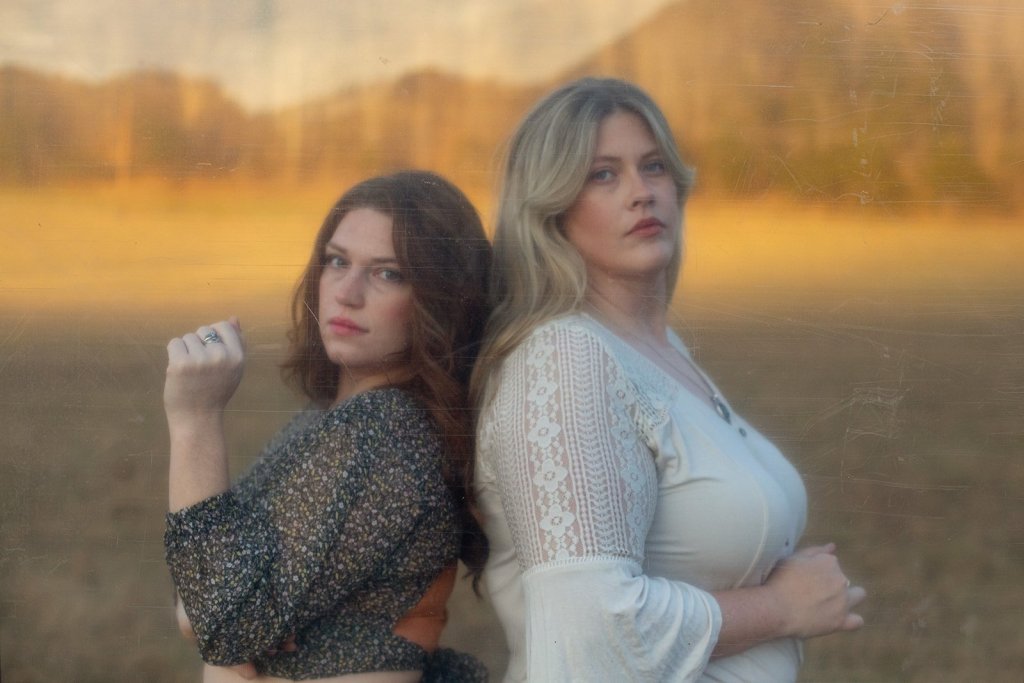
IVPR
Another group heavily inspired by Dickens and Gerrard that's even been referred to as "the modern day Hazel and Alice" are Kentucky's The Local Honeys. The duo of Linda Jean Stokley and Montana Hobbs are incredibly passionate about their home, their support for blue collar workers, preserving their state's natural beauty and more and consider the trailblazing duo that came before them as instrumental in helping inform and giving confidence to their own voices to speak up for what they believe in.
"We first discovered Hazel Dickens (and her remarkable musical partner, Alice Gerrard) when we were in college," says Hobbs. "Linda Jean worked in the archives at the Kentucky Center for Traditional Music [at Morehead State University] and we spent a lot of late nights delving into their rich collection. During this time, we were playing and learning everyday together and felt a kinship with their Pioneering Women Of Bluegrass album. Their music helped lay the foundation of our friendship and we regard them as some of our most influential 'sheros.'"
According to the Honeys, some of their favorite songs from Dickens include "Custom Made Woman Blues," "Working Girl Blues," "Beautiful Hills of Galilee" and the previously mentioned "They'll Never Keep Us Down," but it wasn't just that that drew them to her. Hobbs says that her delivery was just as mesmerizing. Full throated, gut wrenching, and bellowing, she considers it unmistakable.
"Hazel (and Alice) have been incredibly impactful within our musicianship and specifically our approach to songwriting," says Hobbs. "There is an unapologetic nature to Hazel's lyricism and delivery. Their voices amplified the struggles, plights, victories, and stories of their home. Through Hazel's songwriting and activism throughout the region, notably, workers and women's rights, it's evident that her pride and support for Appalachia is unrivaled and sincere."
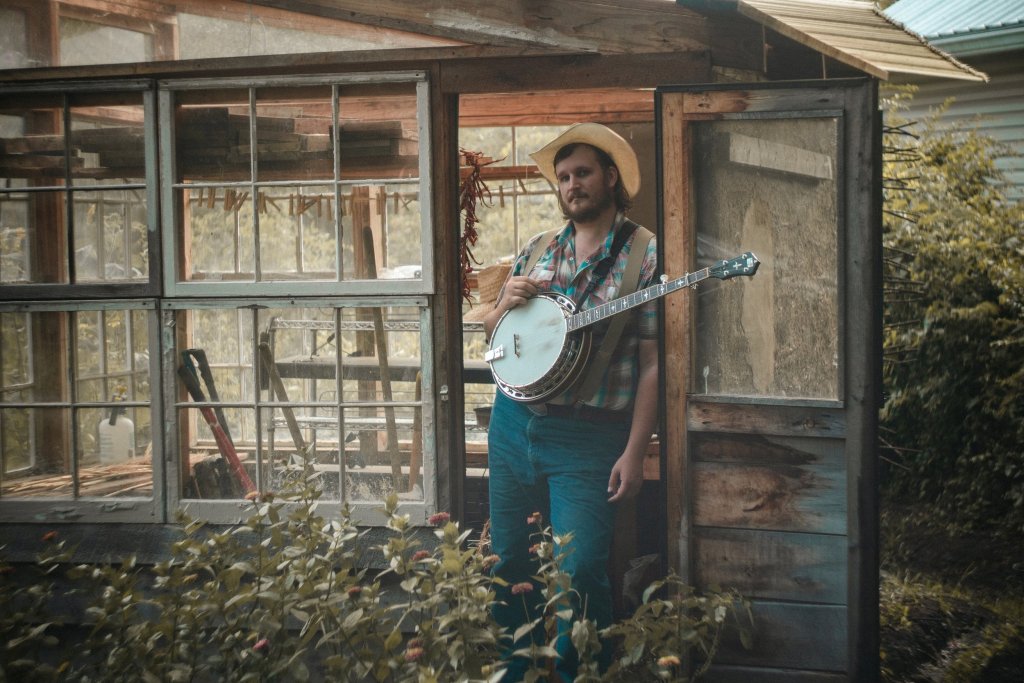
Tim Duggan
Yet another artist influenced by Dickens is Kansas born and Arkansas based Willi Carlisle. He recalls first falling for Dickens and her music during his teenage years, specifically after getting kicked out of a bar in Chicago for smoking and hearing her signature bellow on his iPod on shuffle as he strolled through Millennial Park. A fan of artists like Pete Seeger, Leadbelly, Rosalie Sorrels and Ramblin' Jack Elliott, Carlisle was instantly drawn to Dickens and has been a fan and student of her music ever since. Many songs from his latest album Peculiar, Missouri like "Your Heart's A Big Tent," "Van Life" and "Peculiar, Missouri" speak on social issues with a sense of place very similar to Dickens own work.
"My favorite thing about her style is that it's adorned, but not fancy," says Carlisle. "Bluegrass music has had a ton of progressive iterations, but when Hazel Dickens is doing it, it's the kind of 'bare bones' and 'traditional' that champions the song and its meaning. When she sings, you can tell it's simply to be heard, not to be virtuosic. There's a ton of value in that. I wish more people did it."
READ MORE: The Bill Pickett Rodeo Puts the Long Overlooked Legacy of Black Cowboys Center Stage
